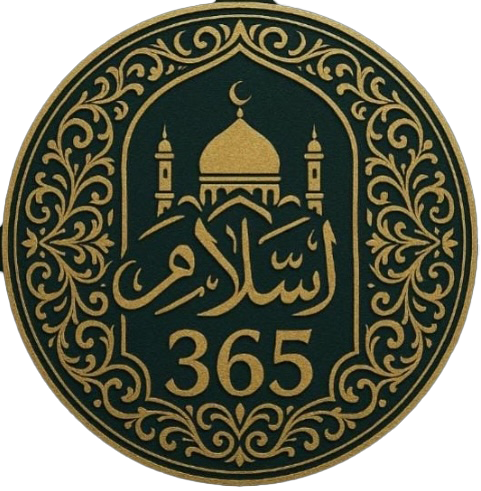How to get close to Allah (God)
Author: Shahid Hassan
As Muslims, our ultimate purpose is to know and worship Allah. Yet, in a world that celebrates personal autonomy and self-gratification, the concepts of submission and worship can seem difficult for many to understand or embrace. When society constantly encourages individuals to prioritize their own desires and live for themselves, the idea of devotion, obedience, and servitude to a higher power can appear counterintuitive.
Ibn Qayyim al-Jawziyya (d. 751/1350), a renowned scholar of Islamic law and spirituality, offers a profound insight: “True servitude (ʿubūdiyya) flows from deep love, and that love arises from recognizing the perfection of the One who is loved.” In essence, the path to sincere worship begins with love for Allah, and that love grows through knowing Him—particularly by reflecting on His names and attributes.
“And I did not create the jinn and mankind except to worship Me.”
— Surah Adh-Dhariyat (51:56)
These Divine Names are not only meaningful for our lives today but are also vital for nurturing our awareness of the Hereafter. When we understand who Allah truly is—based on how He has described Himself—we form more accurate and hopeful expectations of Him. As the Prophet Muhammad ﷺ conveyed from Allah: “I am as My servant thinks of Me.” For instance, when we grasp the depth of Allah’s mercy, we not only seek signs of it in this world, but we also eagerly anticipate His mercy on the Day of Judgment, when it will matter most.
Thus, knowing Allah through His names leads us to love Him, draw nearer to Him in this life, and stay focused on the eternal life to come.
Say: If you love Allah, then follow me, and Allah will love you and forgive your sins…”
— Surah Aal Imran (3:31)
Moreover, contemplating Allah’s names and attributes teaches us how to live in this world. As Ibn al-Qayyim further explains, Allah loves His own names and the qualities they represent, as well as their reflection in His servants. Just as He is Beautiful, He loves beauty; as He is Most Forgiving, He loves those who forgive; as He is Generous, He loves acts of generosity. Those who embody His attributes gain a special closeness to Him that corresponds to how much they reflect these divine qualities in their character and actions.
“Indeed, in the creation of the heavens and the earth and the alternation of the night and day are signs for people of understanding—those who remember Allah while standing, sitting, and lying on their sides and reflect upon the creation…”
— Surah Aal Imran (3:190–191)
The Qur’an presents Allah’s names in many forms, and paying attention to the context in which they appear, how they are paired, and the order in which they are mentioned can offer deep insights into our relationship with Him. A powerful example of this occurs in the concluding verses of Sūrat al-Ḥashr, where a series of Allah’s names are listed in a uniquely structured and impactful manner. The distinctiveness of these verses signals that they hold a special significance and deserve thoughtful reflection.
“Be merciful to those on the earth and the One above the heavens will have mercy upon you.”
— Sunan al-Tirmidhi (1924)
Each name carries a unique meaning that strengthens our connection with our Creator, and the sequence in which they appear is deliberate—offering deeper layers of understanding that can transform our relationship with Allah.
They show no interest in truly knowing their Lord and, as a result, distance themselves from His worship. This spiritual negligence leads them to lose sight of what genuinely benefits their souls. They harm both their worldly lives and their eternal future, missing the chance for Allah’s mercy and healing in their moments of weakness and need.
The remedy for such forgetfulness lies in actively striving to know Allah. That is why, in the same chapter—Surah Al-Hashr—Allah introduces Himself through a powerful and unique sequence of His names and attributes:
“He is Allah—there is no deity except Him—Knower of the unseen and the seen. He is the Most Compassionate, the Most Merciful. He is Allah—there is no deity except Him—the Sovereign, the Most Pure, the Perfection, the Giver of Peace, the Watcher, the Almighty, the Compeller, the Supreme. Glorified is Allah above whatever they associate with Him. He is Allah—the Creator, the Inventor, the Fashioner; to Him belong the best names. Whatever is in the heavens and earth glorifies Him. And He is the Almighty, the All-Wise.”
(Surah Al-Hashr 59:22–24)
These divine names demonstrate how deeply Allah is aware of us—our needs, struggles, and situations. Forgetting Allah means turning away from Him deliberately—ignoring His signs, disregarding His names and attributes, and rejecting the truth brought by His Messenger ﷺ. In essence, such individuals fail to recognize the rights Allah has over them. Even before we encounter life’s hardships, Allah has already prepared the support, comfort, and guidance we require through Himself. Each name addresses our concerns in a profound and comprehensive way. When we reflect on one of His names and still feel a lingering concern, we often find that the very next name brings peace to that worry—reassuring us and drawing us closer to Him.
“The Most Compassionate, Most Merciful” – Understanding Allah’s Mercy
In this verse, Allah describes Himself with two of His most familiar and frequently mentioned names: al-Raḥmān (The Most Compassionate) and al-Raḥīm (The Most Merciful). These names are often translated in various ways—such as “Entirely Merciful,” “Especially Merciful,” or “The Bestower of Mercy”—but at their heart lies the concept of raḥmah, which encompasses tenderness, compassion, care, and deep concern for others.
To show mercy is to treat someone with gentleness and to want what is best for them. Allah’s mercy, however, is not like human mercy—it is far greater. The name al-Raḥmān reflects the vastness and intensity of His mercy, which is unique to Him and encompasses all of creation. As the Qur’an says,
“My mercy encompasses all things”
(Surah Al-A’raf 7:156)
. And in a hadith, the Prophet ﷺ reported that when Allah completed creation, He wrote: “Indeed, My mercy prevails over My wrath.” (Sahih al-Bukhari)
This universal mercy includes everyone: believers and non-believers, humans and animals, the righteous and the sinner. Al-Raḥīm, on the other hand, reminds us that Allah’s mercy is not only vast but also constant and enduring—especially reserved for those who believe in Him. The Qur’an says: “And He is ever merciful to the believers” (Surah Al-Ahzab 33:43). This mercy manifests in spiritual guidance, inner peace, and forgiveness.
The Prophet ﷺ further emphasized Allah’s deep care for His creation when he said: “Allah is more merciful to His servants than a mother to her child.” (Sahih Muslim) And another hadith tells us that Allah divided His mercy into 100 parts—He sent only one part to Earth, and kept 99 parts for the Hereafter. Even the compassion animals show their offspring stems from that single part (Sahih al-Bukhari, Sahih Muslim). So no matter how abandoned or unloved we may feel, Allah’s mercy is always far greater than anything we could imagine.
Even when life feels difficult or confusing, and when His wisdom is hidden from our view, Allah’s mercy remains present. He knows our struggles and our sins—and still chooses to show us compassion. His knowledge doesn’t disqualify us from His mercy; it highlights how generous it truly is. We see this in the story of Prophet Zakariyya (AS), who, despite his pain and longing, turned to Allah in secret prayer. Allah answered with mercy.
“[This is] a mention of the mercy of your Lord to His servant Zakariyya…
(Surah Maryam 19:2)
This teaches us that Allah’s mercy is near to those who sincerely call upon Him.
Trials, though hard, are not a sign that Allah has forsaken us. On the contrary, they can be expressions of His mercy, guiding us back to Him and preparing us for a better reward in the Hereafter. Just as a caring parent may restrict or correct their child for their own good, Allah sometimes withholds or tests us for reasons we may not yet understand.
For example, an older sibling may spoil a younger one thinking they’re being kind, when in reality it harms the child. True mercy involves wisdom and foresight. Similarly, Allah knows what is ultimately beneficial for us, even if we do not.
A striking example of this is found in Quran, where Prophet Musa (AS) witnesses events carried out by Al-Khidr that seem cruel—like damaging a boat or taking the life of a child. But in the end, each act was full of wisdom and mercy. The Qur’an tells us that Al-Khidr was given raḥmah and knowledge from Allah (Surah Al-Kahf 18:65). These stories remind us that what may appear harsh on the surface may, in reality, be acts of deep divine compassion.
Ultimately, Allah’s mercy addresses every human need—the desire to be loved, cared for, guided, and protected. He is al-Raḥmān al-Raḥīm—always aware of our pain, always responding to our prayers, and always guiding us toward what is best. Even when we don’t understand His plan, we must trust that it is wrapped in mercy, and that no one will ever care for us more than Him.
Summary:
The path to drawing closer to Allah is one of love, understanding, and devotion. It starts with a deliberate effort to build a personal connection with Him by learning about His names and attributes. Reflecting on the Divine Names found in the Qur’an and Hadith allows us to feel Allah’s presence in our lives and recognize His infinite mercy, wisdom, and strength.
To cultivate closeness with Allah, one must consistently engage in acts of worship—such as prayer, supplication, and remembrance (dhikr)—which help strengthen the relationship with Him. Alongside this, sincerely understanding and implementing His guidance in our daily lives deepens the spiritual bond.
Acts of kindness, humility, and seeking Allah’s forgiveness also play a crucial role in this journey. By following the example of Prophet Muhammad ﷺ and striving to live with sincerity and integrity, we align ourselves with the Divine will and open ourselves to Allah’s mercy.
Lastly, it’s important to remember that the journey to Allah is a continual process of growth and self-reflection. By embodying His attributes, such as mercy, patience, and generosity, we move closer to His nature and draw nearer to Him.
In conclusion, drawing closer to Allah requires love, knowledge, sincere worship, and ongoing self-improvement. By making Allah the center of our hearts and actions, we move toward the ultimate goal: seeking His pleasure and achieving success in the Hereafter.
Author: Shahid Hassan (PhD Student)

